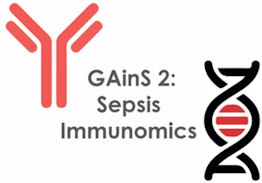Therefore, we are passionate about clinical research and believe we should offer every child in critical care the opportunity to be involved in research.
Research on patients is often referred to as a 'trial' or 'study'. This is a structured process leading to new information about a treatment, test or condition. This new information can be used in lots of different, positive, ways.
The decision to take part in research is always voluntary. Your child will receive excellent care whether you decide to participate or not.
You are free to withdraw your child from any study at any time, with no impact on their care.
Studies 2025
PRESSURE

We would like to find out more about how low blood pressure is managed and treated. Part of the treatment of low blood pressure are drugs called vasopressors, and, while they are essential, they also carry risks.
We want to find out whether children on PICU could be managed more safely with lower blood pressure targets, and whether it could lead to these children receiving less drug treatment and recovering more quickly.
GASTRIC

A research study looking at whether we should measure children's stomach contents when they are tube-fed in PICU. The purpose of the study is to find out whether not measuring children's stomach contents during tube feeding is safe and beneficial.
The GASTRIC-PICU Study | ICNARC
REMAP-CAP

The aim of this study is to investigate which treatments are best for patients admitted to hospital with COVID-19, flu or pneumonia.
Coming soon
PIVOTAL

The Paediatric Intensive Care Adaptive Platform Trial (PIVOTAL) will test multiple different research questions and treatments at the same time to identify the best care for children admitted to PICUs as quickly and efficiently as possible
Sepsis Immunomics

Sepsis Immunomics aims to use cutting edge sequencing techniques to understand genetic variation (genomics), and changes in gene expression (transcriptomics) in adults and children with severe infection.
Severe presentations of infectious and inflammatory disease: multi-omic immune phenotyping (SPID-MIP)
SPID-MIP aims to take insights from Sepsis Immunomics and studies from other groups, and use newly developed rapid gene (DNA) and gene expression (RNA) sequencing techniques, to inform patient care in clinically-relevant time scales.
Severe Presentation of Infectious Disease (SPID)
Further information
Please read our leaflet at the link below:
Research in Paediatric Critical Care (pdf)
Publications
A sample of recent publications includes:
Carter et al. (2024) Susceptibility to childhood sepsis, contemporary management, and future directions. Lancet Child and Adolescent Health.
Patel et al. (2024) Shared neutrophil and T cell dysfunction is accompanied by a distinct interferon signature during severe febrile illnesses in children. Nature Communications.
Carter et al. (2025) Evaluation of Phoenix Sepsis Score Criteria: Exploratory Analysis of Characteristics and Outcomes in an Emergency Transport PICU Cohort From the United Kingdom, 2014-2016. Pediatr Crit Care Med.

